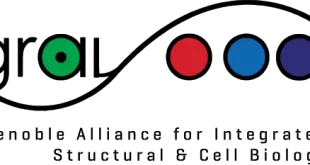We advertise the openings of 4 PhD fellowships at University of Copenhagen, in the field of Exolife Science, understood as the overlap field between astronomy, biology, physics, and chemistry. The fellowships are part of the synergy project: “Effects of bacteria on atmospheres of Earth, Mars, and exoplanets”.
Start of all the fellowships is August 15, 2021, or soon thereafter.
The project is part of a total of 6 new synergy positions involving staff at University of Copenhagen from the Niels Bohr Institute, the Department of Chemistry and the Department of Biology. The candidates will work as a team with the common goal of deepening our understanding of the global interactions of life with its surroundings in terrestrial and extraterrestrial environments.
For more information, please see https://cels.nbi.ku.dk/english/openings/
PhD project 1: ‘‘Activity of microorganisms under extreme conditions”
The main goal of the project is to investigate the survival and activity of microorganisms under extreme conditions e.g. simulating Mars. This will be based on cold-active and xerotolerant bacteria, archaea and fungi isolated from extreme environments on Earth. Selected microorganisms will be genome sequenced to characterize their genetic potential and transcriptomic studies will be used to characterize their responses to e.g. Martian challenges. The project includes studies on how microorganisms may affect atmospheric composition and how microbial activity may be traced as potential biosignatures of life on exoplanets.
PhD project 2: “Spectra of exoplanet bio signature molecules”
The main goal of this project is to measure vibrational and electronic spectra of compounds produced by the bacteria and archaea in the test chamber and other relevant bio signature molecules. Spectra will also be calculated based on methods we have developed and continue to develop for molecules we suspect are plausible in exoplanetary atmospheres, but where experimental spectra might not be possible. Theoretical chemistry will be used to investigate photolysis and chemical reactions of the molecules that could be potential bio signatures of life on exoplanets.
PhD project 3: “Cloud formation and cloud properties on Earth and in exoplanets”
The main goal of this project is to develop realistic self-consistent numerical models of atmospheric structure with cloud formation, and compute emergent synthetic spectra that can be compared to observed exoplanet spectra, in order to quantify potential signatures of life in the spectra. The project includes studies of how microbiology potentially affects the formation of clouds and how this can be traced in spectra of exoplanets as a potential biosignature.
PhD project 4: “Micro-biological influence on atmospheric dynamics”
Aerosols, which can be microbial organisms, crucially influence planetary albedo and precipitation through changes to cloud properties. Microbial aerosols may even influence cloud formation in ways to improve local conditions – constituting an evolutionary life-climate feedback. In this PhD project, such life-climate interactions will be explored with simulations and theoretical models. We will simulate the effects of microbes spreading in space, interact, and thus evolve. We explore, which planetary atmospheres promote the emergence of life.
Principal supervisors are
Professor Uffe Gråe Jørgensen, Niels Bohr Institute, email: uffegj@nbi.dk
Associate professor Jan O. M. Härter, Niels Bohr Institute, email: haerter@nbi.ku.dk
Professor Anders Priemé, Department of Biology, email: aprieme@bio.ku.dk
Professor Henrik Grum Kjærgaard, Department of Chemistry, email: hgk@chem.ku.dk
 medjouel.com Study Non Stop
medjouel.com Study Non Stop



